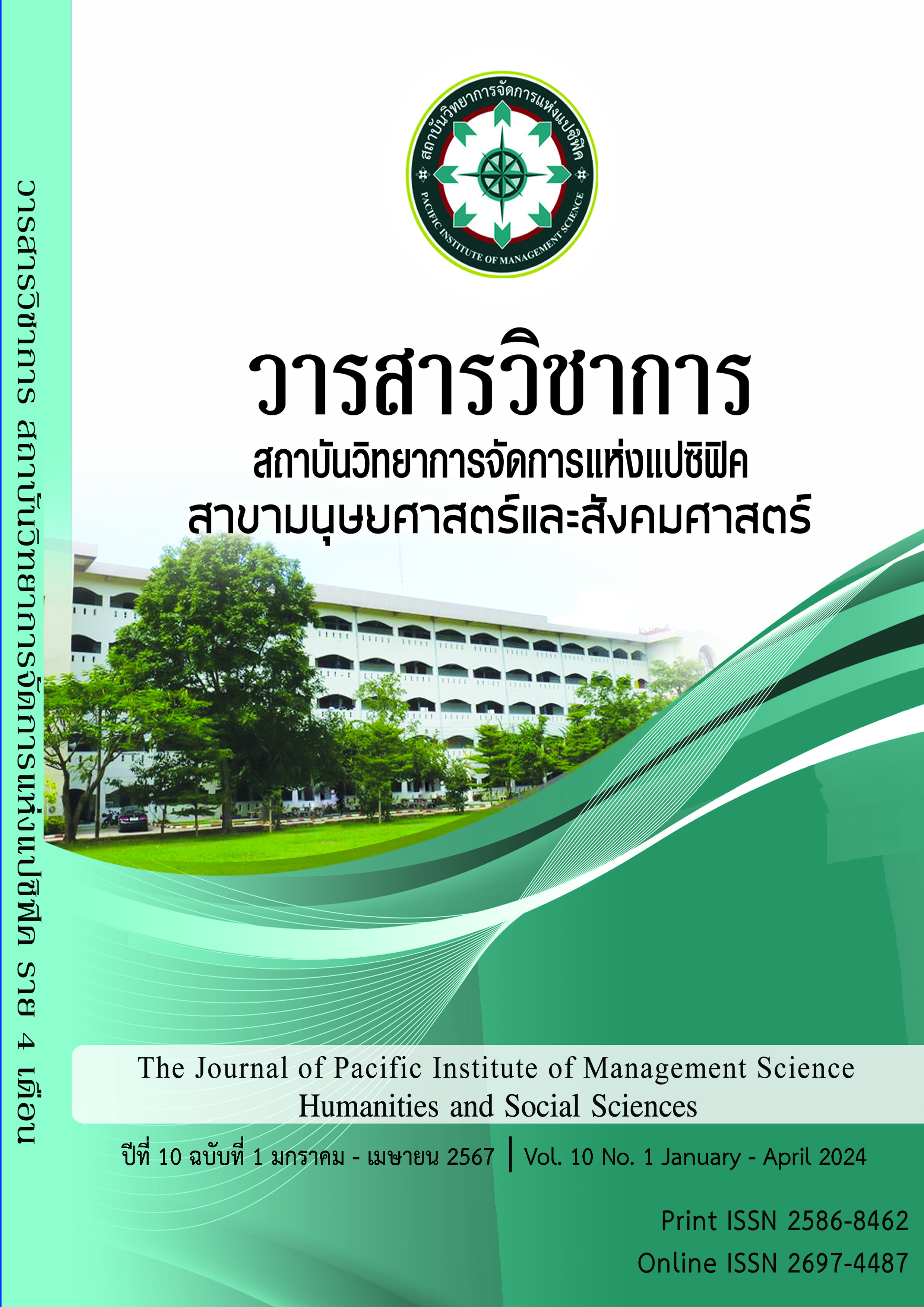Analysis of the Elderly Living Allowance Project and the Sufficiency Economy Philosophy
Elderly living allowance , sufficiency economy ,Policy analysis
Keywords:
เบี้ยยังชีพผู้สูงอายุ, เศรษฐกิจพอเพียง, วิเคราะห์นโยบายAbstract
From the current situation in Thailand the number of elderly people is comparable to many developed countries, which is considered to have the third highest growth rate in Asia. In 2030, the proportion of the elderly population will increase to 26.9 percent of the entire population. country The government has implemented a living allowance program for the elderly. To allocate government budget to support expenses for the elderly in the community. or in various villages across the country which are experiencing hardships Because there is not enough income for subsistence. In this academic article, the author has applied the sufficiency economy philosophy in a systematic way. That consists of input factors, processes, outputs, results, and impacts to analyze the elderly living allowance project. The analysis results found that The principles of the Sufficiency Economy Philosophy include moderation, reasonableness, and immunity. Knowledge conditions That moral condition What was discovered is that the government has the responsibility to create welfare programs for the people (morality). The government uses existing knowledge and abilities to take care of a large number of people in the elderly (knowledge). This leads to Be self-reliant with monthly income as specified (immunity). The government uses money through projects that reach the people without leakage, and people spend as much as they have. (Moderation) as well as people thinking before spending within the budget provided by the government (reasonableness), leading to productivity. People are able to live their lives in old age or the elderly. The result is that the elderly who are affected by the Elderly Living Allowance Project are happy. Leading to the consequences of the project, that is, the government is able to manage the country appropriately in the context of the elderly population. There was peace within the country. and the number of elderly people in the country are happier.
References
กรมกิจการผู้สูงอายุ(2567).การรับเบี้ยยังชีพผู้สูงอายุ.สืบค้น 22กุมภาพันธ์ 2567 จาก
กระทรวงมหาดไทย(2567) .ข้อมูลการจ่ายเงินเบี้ยยังชีพผู้สูงอายุ . สืบค้น 22กุมภาพันธ์ 2567 จาก
ณดา จันทร์สม.(2562). เศรษฐกิจพอเพียง” หลักคิดสู่การพัฒนาที่ยั่งยืน.สืบค้น 22กุมภาพันธ์ 2567 จาก
สุรีย์พร สลับสี และพงษ์พัต วัฒนพงศ์ศิริม, (2565).การวิเคราะห์นโยบายเบี้ยยังชีพผู้สูงอายุของไทย, วารสาร
สังคมศาสตร์ปัญญาพัฒน์, 4(3). 253-262
บุญมี โททำ, ภักดีโพธิ์สิงห์, ชญานิน กฤติยะโชติ. (2561). การน านโยบายเบี้ยยังชีพผู้สูงอายุไปปฏิบัติ.
วารสารวิชาการ มหาวิทยาลัยราชภัฏศรีสะเกษ, 12(3), 149-158
อภิชัย พันธเสน (2558). การวิเคราะห์เศรษฐกิจพอเพียงเชิงระบบ.สืบค้น 22กุมภาพันธ์ 2567 จาก
เทศบาลนครสงขลา(2567).ประชาสัมพันธ์โครงการเบี้ยยังชีพผู้สูงอายุ ปีงบประมาณ 2567.สืบค้น 22
กุมภาพันธ์ 2567 จาก https://www.songkhlacity.go.th/
Downloads
Published
Issue
Section
License
Copyright (c) 2024 Pacific Institute of Management Science

This work is licensed under a Creative Commons Attribution-NonCommercial-NoDerivatives 4.0 International License.
บทความที่ได้รับการตีพิมพ์เป็นลิขสิทธิ์ของ สถาบันวิทยาการจัดการแห่งแปซิฟิค
ข้อความที่ปรากฏในบทความแต่ละเรื่องในวารสารวิชาการเล่มนี้เป็นความคิดเห็นส่วนตัวของผู้เขียนแต่ละท่านไม่เกี่ยวข้องกับสถาบันวิทยาการจัดการแห่งแปซิฟิค และคณาจารย์ท่านอื่นๆในสถาบันฯ แต่อย่างใด ความรับผิดชอบองค์ประกอบทั้งหมดของบทความแต่ละเรื่องเป็นของผู้เขียนแต่ละท่าน หากมีความผิดพลาดใดๆ ผู้เขียนแต่ละท่านจะรับผิดชอบบทความของตนเองแต่ผู้เดียว







